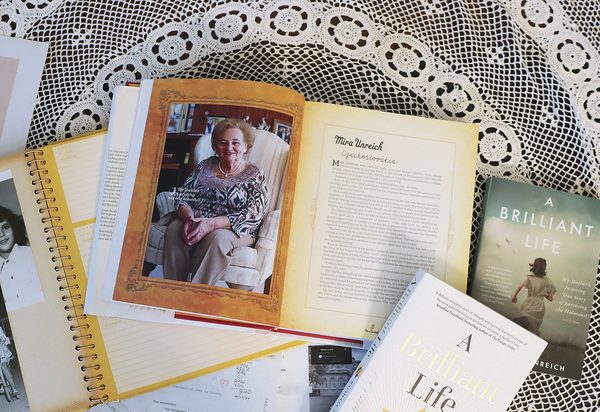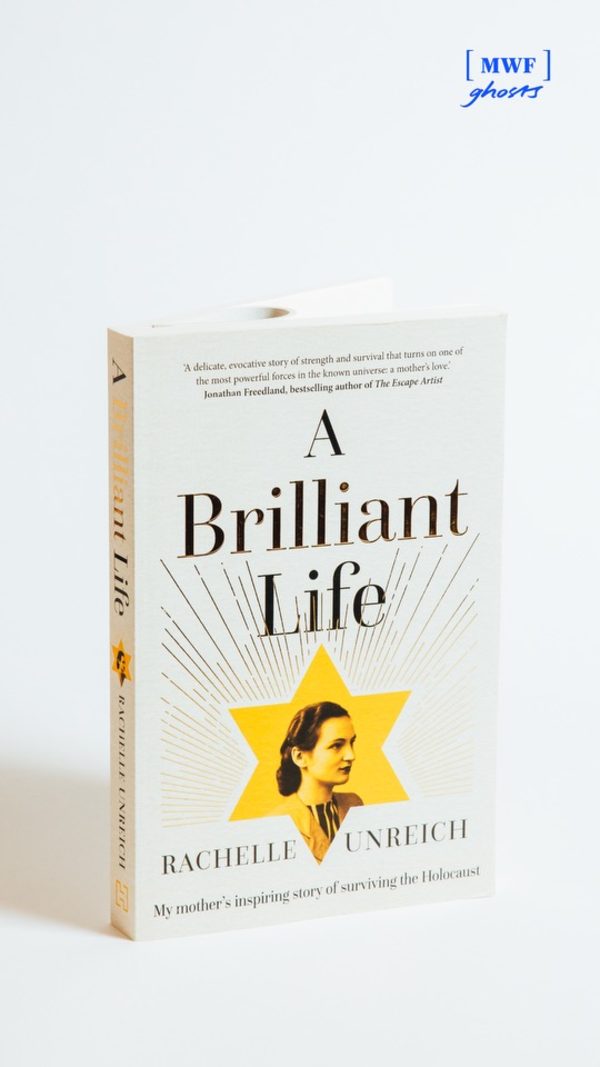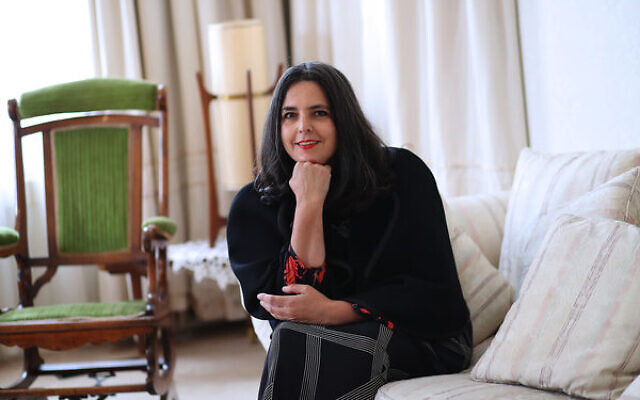Writing a memoir
Jewish author and journalist Rachelle Unreich shares her advice on writing a memoir following the successful release of her book A Brilliant Life.
How do we record our family’s history? This topic is particularly important to the Jewish community because as survivors of the Holocaust pass away the responsibility for sharing their stories is increasingly being passed to the next generations to keep their memories alive.
Jewish author and journalist Rachelle Unreich shares her advice on writing a memoir following the successful release of her book A Brilliant Life which tells the incredible story of how her mother Mira survived the Holocaust and built a new life in Australia, teaching her daughter lessons in strength and resilience.
Unreich was shortlisted for the Australian Book Industry Awards for new writer of the year, as well as shortlisted for The Age Book of the Year award for non-fiction, and is speaking at the Melbourne Writer’s Festival on May 12, and the Sydney Writer’s Festival on May 25 to discuss “More than a Memoir”.
Regarding her talk in Sydney, Unreich told the AJN, “For Jewish people especially, this is an important topic: how do we ensure that our history and past does not slip away, yet not be ruined by the darker parts of that?”
Unreich will also be teaching a two-part short course at the Jewish Museum of Australia titled “Memory to Manuscript: Memoir Writing with Rachelle Unreich” on May 19 and 26.
When you decide to write a memoir, where do you start? According to Unreich, “If you are sitting down to interview somebody, it makes sense to start from the beginning of their lives… but I would say don’t be held too much to that. Let the conversation flow where it is.”
When interviewing someone who is elderly or unwell, or dealing with traumatic memories, interviews can be heavy.

“I think the most important thing is to make the interviews regular, so they don’t feel overwhelming,” Unreich explained. “It shouldn’t feel like a chore. For example, meet on the last Sunday of every month for 20 minutes, something really easy that you can look forward to. You might bring bagels and salmon, or watch your favourite TV show together, so it all becomes part of an enjoyable package.”
For those unsure whether to write about their families past, Unreich advised, “Even if you don’t think your family’s story is of historical importance, I would argue it is, just by being part of history. So, first of all, start with the obvious, your grandparents, your parents, write a sketch of them, bring them to life in terms of who they were a person.
“What did they like doing? What did their approach to life tell you about them? What were funny things they did? What was some of the more dramatic moments of their lives? Those things are really important to flesh out a person.”
To develop a biography, she suggests interviewing extended family members and friends. She notes that there are incredible local resources to turn to such as the Melbourne Holocaust Museum, Sydney Jewish Museum and Joint Australia, as well as international sources such as Yad Vashem and the US Holocaust Museum.
Unreich also encourages people to consider writing courses and writers groups to develop confidence in writing.
With regards to writing a memoir about the Holocaust, Unreich said she started with her mother’s testimony but then sought to verify what she said with extensive research.
“When you have a Holocaust story, I wanted her legacy to continue and her story to be recorded. There is the problem of Holocaust denial, when a story gets picked apart if there is an error,” she said.
“I just wanted to ensure there was none. And so to that end, I didn’t invent anything in the book. And I wouldn’t let my editors paraphrase or edit her sentences, even when there was broken English, because I wanted it to be exact and accurate. I tried to verify every single thing that happened to her and ended up verifying so much of it.
“And I think it’s really important for future generations to have credibility for these stories, so no one can say that’s made up so maybe it didn’t happen.”

When we discussed that many writers turn to fiction that is “based on a true story” to write about the Holocaust, Unreich commented, “It’s really important that we write accurately. That’s not to say there isn’t a place for fiction about the Holocaust, but I think they both serve different purposes.
“I think fiction serves a purpose in exposing a lot of people to the Holocaust and making them want to be curious and educated. Where it falls into problems is when it is so distorted that it makes the Holocaust seem like a place you can romanticise – a place that is devoid of the horrors that it really had… And on the other hand, I think non-fiction is incredibly important to add to the existing knowledge base.”
Through her research Unreich was able to provide historical evidence to museums that they otherwise did not have.
Unreich hopes her book will serve as a “historical document” to keep the memory of those who perished alive.
“I always think about what Elie Wiesel said about invisible tombstones, that when you write about people who died in the Holocaust, people who had no grave markers… you are erecting tombstones in their memory. And I feel I did that for many members of my family.”
A Brilliant Life by Rachelle Unreich is published by Hachette Australia.


comments